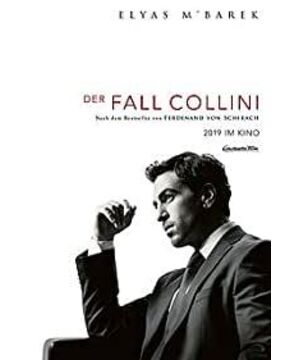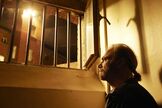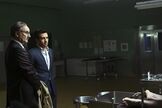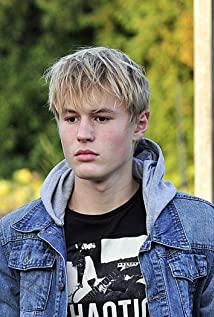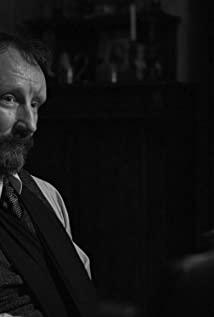"Not Guilty Murder" reminds me of a movie "The Reader" a few years ago. Although the former is dressed in the cloak of a crime film, and the latter is remembered for its terrifying peerless love, the perspectives of the two films are the same-how to treat World War II war criminals in the modern world, especially when that person is intimate with you When it comes to your social relationship, will you stand from the perspective of social justice or from the perspective of personal emotions. Which end of the scale will you lean toward?
I believe most people will choose justice. But the actual choice is not that simple. The reason why the two films connect people's complex emotions and bring the story to the dark depths is precisely because war criminals are also ordinary people—in modern society, they have jobs, families, and ordinary lives just like us. When they conceal the past and you don’t know anything about their past, when one day you suddenly discover that your close lover or relative played a very evil role in history, how will you deal with it?
"Innocent Murder", like "The Reader", raises extremely cruel questions.
What's interesting is that the male protagonists of these two films have all turned from law school students to become real lawyers in society. Compared with family love, both of them prefer more serious social emotions and stand on the side of human justice. The male protagonist in "Reader" is extremely ashamed of a life and death relationship with Hannah (Kate Winslet), and Laining, the lawyer who defended the murderer Corinne in "Not Guilty Murder," is also very ruthless. He disregarded the affection of his ex-girlfriend, let alone the affection of his father's deceased Hans Meyer, and walked firmly to the defendant's defense.
Many viewers can see from these two films that modern German society is still very much admired for its attitude towards reflection on World War II, but from the depth of my emotions, I think the reflection on the performance of the two films is subtle and does not move towards the same. Road.
In "Reader", when war criminal Hannah was tried, she innocently said "I just finished my job", which was shocking but reasonable. From the audience's point of view, it is easy for us to have deep pity for her, because she is indeed an insignificant link in the murder chain, but she does her duty.
In "Not Guilty Murder," the perspective on this issue is completely opposite. Mingleining’s professor Martin Ge raised a thought-provoking question: In that time and space, in the state of war, Hans Meyer was also working as an SS officer, completing his assignments. Internal responsibility (to chase and kill the Italian guerrillas and thus implicate innocent civilians)-but why, he has been brutally killed so far and he still needs to be held accountable in history? Who can guarantee that you will not make the same choice in the environment at the time?
Stories of the same nature raise the same questions, but the answers go to both ends. In "The Reader", we will stand from the perspective of a war criminal, considering that she is also a human being and a part of the war industry; while in "Guilty Murder", we will not condone Hans Meyer’s guilt, even if He has made great contributions to society for the rest of his life, and he is still guilty of death. ——I can’t help but wonder, what is the reason for this emotional bias?
It's the details.
In "Innocent Murder", the evil of war is expressed in a very specific way. It is extremely cruel and extremely bloody, because Hans Meyer used the innocence of a child to let him watch his innocent father die for himself. .
Corinne bears the guilt of his life, including not only the hatred of Hans Meyer, but also the owe to his father. His killing of Hans Meyer was extremely cruel, but it contained two profound emotions-revenge and atonement. When the war dissipated like clouds in the sky and people could continue their ordinary lives in the sunny squares of Italy, the child Corinne grew up with hatred and regret, and he lived a miserable life.
"Innocent Murder" peels off the past of a ruthless murderer like an onion. With the heart and eyes of lawyer Laining, we trace the truth of this case little by little, through layers of fog, and finally reach the sunny day of 1944. Town square. ——A dehumanizing event is happening there, and it only takes a moment to affect a person's life.
Because of our focus on our personal lives, we have seen how war can have an indelible impact on the victims. When Leining's professor asked "Hans Meyer was just doing his own thing", we would never forgive this demon from the bottom of our hearts, because his evil is so inhumane in broad daylight. We can't forget the desperate look in the child's eyes.
From this perspective, "Not Guilty Murder" is definitely on the side of the victim. It leads the problems raised in "Long Reader" to the road that must lead to condemnation and reflection, and does not allow us to have compassion and empathy for war criminals. Even if the last moments of their lives as ordinary people being mutilated to death are so terrifying, our audience will not regret it. Because Hans Meyer ruined countless Corinne's life.
So imagine, if Hannah in "The Reader" was not dictating, but the movie kept flashing back to the montage of the deaths or survivors of those who were sent to the concentration camps by her, who would we shed tears for...or, Sympathy and grief are not enough to eliminate the cruelty of war. In this, human beings have played the wicked together, and have also become victims together?
A more complicated issue in "Not Guilty Murder" is how the children and grandchildren of war criminals face the past of their families and their own identities.
If Leining, as a law student, should regard fairness and justice as a professional ideal, it is understandable to make a choice, then no matter how cruel and ruthless to the Hans Meyer family, he has his reasons for justice. But for Hans Meyer's granddaughter, this was not the case. She never knew that she was the offspring of war criminals. Her close relatives killed so many innocent people. How she faced history, society, and the future is a more cruel problem.
What impressed me was a detail in the movie-when the historical truth was finally solved, outside the court, Hans Meyer's granddaughter sat in a chair for a long time unable to calm down. She asked Lenin: "Am I that kind of person too?" The question was heartbreaking. For Laining, the pursuit of justice is indispensable; but for Hans Meyer's granddaughter, the pursuit of justice means "betrayal" to a loved one. I will choose what I believe to continue to live, including the memories of my loved ones stored in my mind, and how to face this memory-whether to stay away from the heinous person or to forgive the heinous person. It seems that there is no path for me to go on. And does my ego contain the evil genes of the previous generation, and how will people view me? This is a difficult problem for the Germans, and if it is placed in Chinese society, it will be even more difficult.
From this perspective, "Innocent Murder", packaged as a Hollywood-style crime film, bears a heavier social significance. It not only continues the tradition of German society’s reflection on war, but also penetrates the perspective of observation into personal life- we clearly see how war affects generation after generation after the end of the war, and they are still troubled by many moral shackles. , Whether it is the offspring of war criminals or the offspring of victims, everyone is truly confronted with criticism and grief in their specific lives. This is also the cruelty of war, which continues in another way.
After I watched the movie, out of curiosity, I searched for movie-related information. I was surprised to find that Ferdinand von Schlach, the author of the original film "The Corini Case", did include these two very specific issues in his identity-both a lawyer who stood by justice and a Nazi Descendants of war criminals. His grandfather was Bardul von Schiller, who was accused of being one of the main criminals of the Nazis in the Nuremberg trial!
Baldur von Schlach joined the Nazi Party at the age of 18. He became the leader of Hitler's "Imperial Youth League" in 1931 and was sentenced to 20 years in prison for "crimes against humanity" in the Nuremberg trial in 1946. It was only a few years before his death that young Ferdinand left an intuitive impression of the grandfather.
In the interviews I saw, Ferdinand’s attitude towards his grandfather was both calm and secretive. Sometimes he was willing to talk straight about his grandfather, sometimes he avoided it. But the most impressive thing is that Ferdinand said the sentence on his grandfather’s tombstone: "I am one of you." This is a warning not only for him, but also for us bystanders who look like outsiders. Word.
"I am one of you. " ——In my opinion, it is the core point of the movie "Innocent Murder". As war criminals, there is a good side; as a murderer, there is also a good side; as a relative, there is also an evil side... Absolute good and evil do not exist, and we are more often blurred. In the gray area, because of different time and space problems, they make their own choices of a certain aspect of humanity.
When Hans Meyer’s granddaughter lowered her head in thought and asked "Am I the same as him?", it was an extremely cruel question, just as Ferdinand as a lawyer asked himself, am I the same as my grandfather?
The Lenin in the story is the other self from Ferdinand. He said to her in the movie: "You are yourself."
This sentence makes people relieved and relieved. It is conceivable that Ferdinand wrote to the end with a question. He gave a clear answer to both history and self: The next generation of war criminals should not bear the notoriety of war criminals, but should become independent people and continue to live, but they should be more than ordinary people. People are more morally responsible for war, and they should continue their duty of pursuing justice for this painful history.
Finally, because of my personal curiosity, I discovered that Benhard Schlink, the original author of The Reader, and Ferdinand, the author of The Corini Case, were both legal writers. Schlink was still a student of Ferdinand. Professor of law, what a miraculous coincidence! They use different types of stories to raise similar questions. Although the perspectives of examining war are different, the films adapted from the two books have deeply felt the evil of the continuation of the war and the extremely complicated and dark side of human nature.
I really like what Professor Martin Ge said in "Not Guilty Murder". When Leining asked him to accept the trial as a legal history expert, he walked from the plaintiff’s defense to the witness stand, jokingly saying, “It’s not bad to look at this place from another angle.” In the center of the court, look at it as a war criminal. The history of the victims, the murderers who were the victims and the superior judges in the world, has not changed because of this, but the emotions and reflections have become different.
Yes, "look at it from another angle", this is exactly the problem raised by Reader and Innocence. Let us take another look at human nature and war.
View more about The Collini Case reviews


